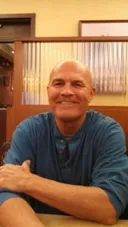What are My Options if I'm Tired of Medicine?

atic12/123RF.com
We need to clarify your feelings toward medicine. The phrase “burned out” is tossed around with way too much frequency. I believe the definition can actually vary with each specialty and each individual. Let me give you an example of my own burn out. I spent most of my career in academics or private practice (25 years). I felt good about medicine and loved what I did. I was an Anesthesiologist who focused on Critical Care. My decision to end my career was after a 7 year stint at a job that changed my whole perspective. There were too many rules for rules sake, too many administrators, and a lack of cutting edge medicine. This developed into a negative focus for me. In the past, when I had to talk with a family about their loved one dying, I knew I had done all that could be done, period. At this job, I did what I could do within their system. I believe I quit medicine at least 3-5 years early because I couldn’t live with how the system affected the way I practiced. My burn out was more external than internal. I still loved medicine, but not this type of medicine. I didn’t want to set up anywhere else, so I retired.
The first thing that needs to be examined is your medical practice. Are you the problem, or is it where and how you are practicing? Do you still love medicine? Is it taking too much from you? Do you hate where or how you practice? This is where we see that burnout is a garbage term for many different scenarios. Young people are rarely burnt out from medicine. They may have chosen the wrong career or are working harder than they anticipated. This isn’t burnout, but it does need to be rectified because the physician and the patient will suffer.
We will define burn out as having at least 3 of the 4 following situations: 1) internal or external dissatisfaction with medicine 2) overwhelming discouragement and/or disillusion 3) continuing concern about not doing your best 4) a new DSM 5 diagnosis (depression, anxiety) to your personal condition list. We first ask ourselves if we still love medicine. If the answer is no, then the need to move on from medicine is much clearer. If yes, you still love medicine, then check to see if you fit the burn out criteria. If you do, then major change is in order. If you don’t fit the burn out criteria and still love medicine, then practicing in a different venue or going part time are options.
There are many op-eds stating how you can leave medicine and make almost as much money doing other jobs. I don’t find this to be true at all. Yes, there could be a few jobs that meet the level of income from practicing medicine, but they are few and difficult to get. Be realistic about the loss in income when you leave medicine. Plan ahead for this change. If it were easy to leave medicine and retain the income, a significantly higher percentage would be leaving.
If you still love medicine, but are burnt out clinically, there are several directions in which you can look. Telemedicine gives some space between you and the patient and offers many different levels of time commitment. This will allow you to stay in touch with medicine. The types of telemedicine range from general practice to psychiatric to critical care. The tele-physician needs a certain mindset that the examination of the patient is not in the usual sense. Advice is related to a clinical situation. Telemedicine is worth a try, and short-term stints are often times available.
Maybe you want to leave clinical practice all together. With additional training, possibly an MBA or MHA could lead you to hospital administration. Many physicians have moved from clinical practice to IT work. Giving clarity to how medical information is set up and stored is an extremely valuable skill set.
Medical writing or research can be an option. A high percentage of writers are freelancers. If you are comfortable working from home and initially have an income that will allow you to build your client list, there are many clients. Non-clinical medical research may require some further education, but is not out of reach.
For the physician who doesn’t love medicine and is burnt out, staying in the medical field makes little sense. In my experience, moving to medical administration or Pharm in a field you don’t care for, and one in which you have lost your edge, would be a path to failure. Further education in divergent fields may be the answer. There are many lawyers who went to law school after short medical careers. Possibly a PhD in a field of interest might be satisfying. Dropping to part time clinical practice while the issue of career change is solved is very possible. With little effort, someone with a medical degree can adjust to teaching at many levels of the education system.
In summary, if you are tired of medicine, first ask if you still love medicine. Next check to see if you are burned out. Be realistic about your possible income if you leave medicine. The possibility of practicing part time while you re-educate or re-evaluate yourself is wide open. It’s a long life if you hate what you do. Check the options that interest you and courageously move ahead.
Related Posts
